- Home
- Fredric Brown
Martians, Go Home Page 13
Martians, Go Home Read online
Page 13
Fearfully he opened his eyes and looked around the room. No Martians. Of course not; there weren’t any Martians. He didn’t know how he could be so utterly, completely certain of that fact, but he was utterly and completely certain.
Just as certain as he was that he was sane, now.
He turned to look at Margie. She still slept peacefully, her face as innocent as a child’s, her honey hair spread about on the pillow beautiful ever in disarray. The sheet had slipped down to expose the tender pink nipple of a softly rounded breast and Luke raised himself on one elbow and then leaned across to kiss it. But very gently so as not to waken her; the faint light coming in at the window told him it was still quite early, not much after dawn. And also so as not to wake himself, that way, because the last month had taught him that she’d have nothing to do with him that way by daylight, only at night and wearing those damned things in her ears so he couldn’t talk to her. The damn Martians. Well, that part of it wasn’t too bad; this was a second honeymoon, not a first, and he was thirty-seven and not too ambitious early in the morning.
He lay back and closed his eyes again, but already he knew he wasn’t going back to sleep.
And he didn’t. Maybe it was ten minutes later, maybe twenty, but he found himself getting wider awake every second, so he slid cautiously out of bed and into his clothes. It was still not quite half past six, but he could go out and take a walk around the grounds until it was late enough. And Margie might as well get as much sleep as she could.
He picked up his shoes and tiptoed out into the hall with them, closing the door quietly behind him and sitting down on the top step of the stairway to put on his shoes.
None of the outer doors of the sanitarium was ever locked; patients who were confined at all—fewer than half of them—were confined to private rooms except while under supervision. Luke let himself out the side door.
Outdoors was clear and bright, but almost too cool. Even in early August a dawn can be almost cold in Southern California; this one was, and Luke shivered a bit and wished he’d put on a pullover sweater under his sport jacket. But the sun was fairly well up and it wouldn’t stay that cool long. If he walked fairly briskly he’d be all right.
He walked fairly briskly over to the fence and then along parallel to it. The fence was redwood and six feet high. There was no wire atop it and any reasonably agile person, Luke included, could have climbed it; the fence was for privacy rather than for a barrier.
For a moment he was tempted to climb it and walls in freedom for had an hour or so, and then decided against it. If be vas seen, either going over or coming back, Dr. Snyder might worry about it and curtail his privileges. Dr. Snyder was very much of a worrier. Besides, the grounds were quite large; he could do plenty of walking right inside them.
He kept walling, along the inside of the fence. To the first corner, and turned.
And saw that he wasn’t alone; wasn’t the only early riser that morning. A small man with a large black spade beard was sitting on one of the green benches that were scattered around the grounds. He wore gold-rimmed glasses and was meticulously dressed down to highly polished black shoes topped by light gray spats. Luke looked curiously at the spats; he hadn’t know anyone wore them any more. The spade-bearded one was looking curiously up over Luke’s shoulder.
“Beautiful morning,” Luke said. Since he’d already stopped, it would leave been rude not to speak.
The bearded man didn’t answer. Luke turned and looked over his own shoulder, found himself looking up into a tree. But he saw nothing there that one does not usually see looking up into a tree, leaves and branches. Not a bird’s nest, riot even a bird.
Luke turned back and the bearded man still stared up into the tree, still hadn’t looked at Luke. Was the man deaf? Or—?
“I beg your pardon,” Luke said. An awful suspicion carne over him when there wasn’t any answer to that. He stepped forward and touched the man lightly on the shoulder. The shoulder twitched slightly. The bearded man reached up a hand and rubbed it casually, but without turning his gaze.
What would he do if I hauled off and slugged him? Luke wondered. But instead he reached out a hand and moved it back and forth in front of the man’s eyes. The man blinked, and then took off his glasses, rubbed first one eye and then the other, put the glasses back on and stared again into the tree.
Luke shivered, and walked on.
My God, he thought; he can’t see me, can’t hear me, doesn’t believe I’m here. Just as I don’t believe—
But, damn it, when I touched him he felt it, only—
Hysterical blindness, Doc Snyder explained it to me, when I asked him why, if Martians were there, I didn’t see blank spots that I couldn’t see through, even if I couldn’t see them.
And he explained that I—
Just like that man—
There was another bench and Luke sat down on it, turned to stare back at the bearded one, still sitting on his own bench twenty yards back. Still sitting there, still looking up in the tree.
At something that isn’t there? Luke wondered.
Or at something that isn’t there for me but is there for him, and which of us is right?
And he thinks that I don’t exist and I think I do, and which of us is right about that?
Well, I am, on that point if no other. I think, therefore I am.
But how do I know he’s there?
Why couldn’t he be a figment of my imagination?
Silly solipsism, the type of wondering just about everybody goes through sometime during adolescence, and then recovers from.
But it gives to wonder all over again when you and other people start seeing things differently or start seeing different things.
Not Spade-Beard; he was just another nut. No significance there. Just that maybe, just maybe, that little encounter with him had put Luke’s mind to working on what could be the right track.
The night he’d got drunk with Gresham and just before he’d passed out there’d been that Martian, like one he’d cussed back at. “I ’nvented you,” he remembered telling the Martian.
Well?
What if he really had? What if his mind, in drunkenness, had recognized something his sober mind hadn’t known?
What if solipsism wasn’t silly?
What if the universe and everything and everybody in it were simply figments of the imagination of Luke Deveraux?
What if I, Luke Devereaux, did invent the Martians that evening they came, when he was in Carter Benson’s shack on the desert near Indio?
Luke got up and stated walking again, faster, to speed up his mind. He thought back, hard, about that evening, just before the knock had come on the door he’d had the start of an idea for a science-fiction novel he’d been trying to write. He’d been thinking, “What if the Martians…”
But he couldn’t remember what the rest of that thought had been. The Martian’s knock had interrupted it.
Or had it?
What if, even though his conscious mind had not formulated the thought clearly, at had already worked itself out in his subconscious mind: What if the Martians are little green men, visible, audible, but not tangible, and what if, a second from now, one of them knocks on that door and says, “Hi’ Mack. Is this Earth?”
And went on from there.
Why not?
Well, for one reason, he’d worked oat other plots—hundreds of them if you counted shorn stories—and none of them had happened the instant he’d thought of them.
But—what if, that night, something in the conditions had been a little different? Or, and this seemed more likely, there’d beer a slip in his brain—from brain fatigue and from worry over his slump—and the part of his mind which separated “fact,” the fictional universe which his mind ordinarily projected about him, from “fiction,” the stuff he conceived and wrote as fiction and which would in that case really be fiction-within-fiction?
It made sense, however nonsensical it sounded.
B
ut what had happened, then, a little over five weeks ago, when he’d quit believing in Martians? Why did other people—if other people were themselves products of his, Luke’s, imagination—keep on believing in and seeing something Luke himself no longer believed in, and which therefore no longer existed?
He found another bench and sat down on it. That was a tough one to figure out.
Or was it? His mind had received a shock that night. He couldn’t remember what it was except that it concerned a Martian, but from what it had done to him—knocked him temporarily into a catatonic state—it must have been a severe shock all right.
And just maybe it had knocked belief in Martians out of his conscious mind, the mind that was thinking right now, without having cleared from his subconscious the error between fact and fiction—between the projected “real” universe and the plot for a story—which had brought the fictional Martians into seemingly real existence in the first place.
He wasn’t paranoiac at all. Simply schizophrenic.
Part of his mind—the conscious, thinking part—didn’t believe in Martians, knew, in fact, that they didn’t exist.
Put the deeper part, the subconscious that was the creator and sustainer of illusions, hadn’t got the message. It still accepted the Martians as real, as real as anything else, and so, of course, did those other beings of his imagination and its, human beings.
In excitement, he got up and started to walk again, rapidly this time.
That made it easy. All he had to do was get the message to his subconscious mind.
It made him feel silly to do it, but he subvocalized: Hey, there aren’t any Martians. Other people shouldn’t be seeing them either.
Had that done it? Why not, if he had the right overall answer, and he was sure he had.
He fond himself at a far corner of the grounds and turned to head back toward the kitchen. Breakfast should be ready by now and he should be able to tell by the actions of other people whether they still saw and heard Martians.
He glanced at his watch and saw that it was ten after seven, still twenty minutes before the first call for breakfast, but there was a table and chairs in the big kitchen and from seven o’clock on early risers were welcome to have coffee there ahead of the regular breakfast.
He let himself in the back door and looked around. The cook was busy at the stove; an attendant was readying a tray for one of the confined patients. The two nurses’ aides who doubled as waitresses on the breakfast shift weren’t around; they were probably setting tables in the dining room.
Two patients were having coffee at the table, both elderly women, one in a bathrobe and the other in a housecoat.
All looked calm and peaceful, no sign of a disturbance. Not that he’d see the Martian end of one if one did happen, but he should he able to tell by the reactions of the people he could see. He’d just have to watch for indirect evidence.
He poured himself a cup of coffee and took it to the table, sat down in a chair. Said, “Good morning, Mrs. Murcheson,” to the one of the two women he knew; Margie had happened to introduce them yesterday.
“Good morning, Mr. Devereaux,” Mrs. Murcheson said. “And your beautiful wife? Still sleeping?”
“Yes. I got up early for a walk. Beautiful morning.”
“It seems to be. This is Mrs. Randall, Mr. Devereaux, if you two don’t know each other.”
Luke murmured politely.
“Pleased, I’m sure, Mr. Devereaux,” said the other elderly lady. “’If you’ve been out on the grounds perhaps you could tell me where my husband is, so I wont have to look all over for him?”
“I saw only one other person,” Luke said. “A man with a spade beard?”
She nodded and Luke said, “Right near the northwest corner. Sitting on one of the benches, staring up into a tree.”
Mrs. Randall sighed. “Probably thinking out his big speech. He thinks he’s Ishurti this week, poor man.” She pushed back her chair. I’ll go and tell him coffee is ready.”
Luke started to push back his owns chair and opened his mouth to say that he’d go for her. Then he remembered that Spade-Beard could neither see nor hear him, so the carrying of a message would be embarrassingly ineffective. He refrained from offering.
When the door had closed, Mrs. Murcheson laid a hand on his. “Such a nice couple,” she said. “It’s too bad.”
“She seems nice,” Luke said. “l—uh—didn’t get to meet him. Are they both—uh—”
“Yes, of course. But each thinks that only the other is. Each thinks he is here just to stay with and take care of the other.” She leaned closer. “But I have my suspicions, Mr. Devereaux. I think they’re both spies, just pretending to be insane. Venusian spies! ” Both s’s hissed and Luke leaned back and under pretext of wiping coffee from his lips managed to wipe the spittle frown his cheek as well.
To change the uncomfortable subject he asked, “What did she mean by saying he thought he was shirty this week?”
“Not shirty, Mr. Devereaux. Ishurti.”
The word or name sounded familiar to him, not that he’d heard it repeated, but he couldn’t place it.
But he realized suddenly that it might be embarrassing if Mrs. Randall brought her husband to the table while he was there, so instead of asking more questions he finished his coffee quickly and excused himself, saying he wanted to go upstairs to see if his wife was awake for breakfast yet.
He made his escape just in time; the Randalls were coming in the back way.
Outside their room he heard Margie moving around inside, knocked lightly so as not to startle her, and then went in.
“Lukel” she threw her arms around him and kissed him. “Have a walk around the grounds?” She was partly dressed—bra, panties and shoes, and the dress she’d dropped onto the bed to free her hands would complete the ensemble.
“That and one cup of coffee. Put that dress on and we’ll be just in time for breakfast.”
He dropped into a chair and watched as she lifted the dress overhead and started the usual series of contortions, ungraceful but fascinating to watch, that women always go through in pulling a dress over their heads.
“Margie, who or what is Ishurti?”
There was a muffled sound from inside the dress and then Margie’s head came out of the collar of it, staring at him a bit incredulously as she smoothed the dress down her body. “Luke, haven’t you been reading the newspa- That’s right, you haven’t been. But from back when you were reading them, you ought to remember Yato Ishurti!”
“Oh, sure,” Luke said. The two names together reminded him now who the man was. “Has he been much in the news lately?”
“Much in the news? He’s been the news, Luke, for the past three days. He’s to make a speech tomorrow on the radio, to the whole world; they want everybody to listen in and the newspapers have been giving it top headlines ever since the announcement.”
“A radio speech? But I thought that Martians were supposed to—I mean, I thought Martians interrupted them.”
“They can’t any more, Luke. That’s one thing we’ve finally licked them on. Radio has developed a new type of throat mike, one that the Martians can’t cut in on. That was the big story about a week ago, before Ishurti’s announcement.”
“How does it work? The mike, I mean.”
“It doesn’t pick up sound at all, as such. I’m no technician so I don’t know the details, but it picks up just the vibrations of the speaker’s larynx direct and translates them into radio waves. He doesn’t even have to speak out loud; he just—What’s the word?”
“Subvocalizes,” Luke said, remembering his experiment in trying to talk to his subconscious that way, only minutes ago. Had it worked? He’d seen no indication of a Martian around. “But what’s the speech about?”
“Nobody knows, but everyone assumes it’s about Martians, because what else, right now, would he want to talk to the whole world about? There are rumors—nobody knows, whether they’re true or not—that one of
them has finally made a sensible contact with him, propositioned him by telling him on what terms the Martians will leave. And it seems possible, doesn’t it? They must have a leader, whether it’s a king or a dictator or a president or whatever else they might call him. And he made contact; isn’t Ishurti the man he’d go to?”
Luke managed not to smile, even to nod noncommittally. What a letdown Ishurti was going to have. By tomorrow…
“Margie, when did you last see a Martian?”
She looked at him a bit strangely. “Why, Luke?”
“I—just wondered.”
“If you must know, there are two of them in the room right now.”
“Oh,” he said.
It hadn’t worked.
“I’m ready,” Margie said. “Shall we go down?”
Breakfast was being served, Luke ate moodily, not tasting the ham and eggs at all; they might as well have been sawdust. Why hadn’t it worked?
Damn his subconscious; couldn’t it hear him subvocalize?
Or didn’t it believe him?
He knew suddenly that he’d have to get away, somewhere. Here, and he might as well face it that here was an insane asylum even if one called it a sanitarium, here was no place to work out a problem like that.
And wonderful as Margie’s presence was, it was a distraction.
He’d been alone when he’d invented the Martians; he’d have to be alone again to exorcise them. Alone and away from everything and everybody.
Carter Benson’s shack near Indio? Of course; that’s where at had all started!
Of course it was August now and it would be hellish hot out there by day, but for that very reason he could be sure that Carter himself wouldn’t be using it. So he wouldn’t have to ask Carter’s permission and not even Carter would know that he was there and be able to give him away if there was a search for him. Margie didn’t know about the place; he’d never happened to mention it to her.
But he’d have to plan carefully. Too early to make his getaway now because the bank didn’t open until nine and that would have to be his first stop. Thank God Margie had opened their account as a joint account and had brought out a signature card for him to sign. He’d have to cash a check for several hundred so he’d have enough to buy a used car; there wasn’t any other way of getting out to Benson’s shack. And he’d sold his own car before he’d left Hollywood.

 Hall of Mirrors
Hall of Mirrors Honeymoon in Hell
Honeymoon in Hell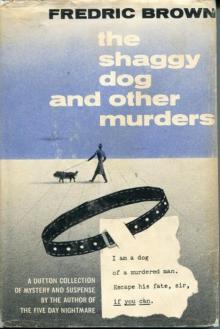 The Shaggy Dog and Other Murders
The Shaggy Dog and Other Murders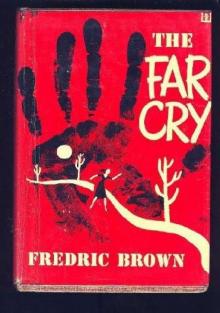 The Far Cry
The Far Cry Arena
Arena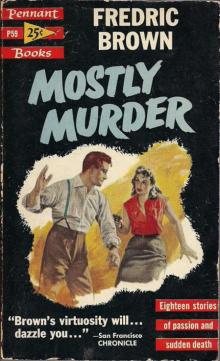 Mostly Murder
Mostly Murder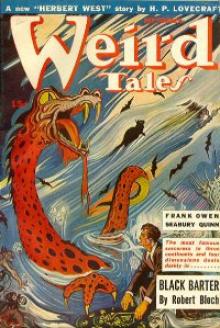 The Geezenstacks
The Geezenstacks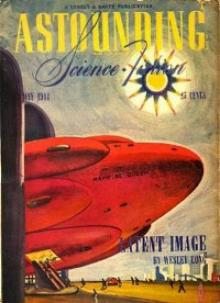 The Yehudi Principle
The Yehudi Principle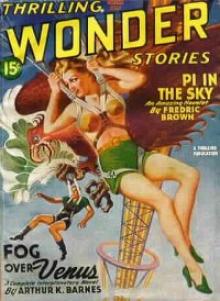 Pi in the Sky
Pi in the Sky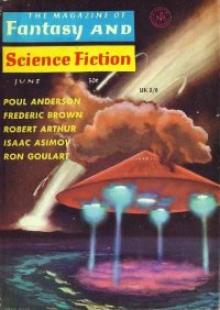 Eine Kleine Nachtmusik
Eine Kleine Nachtmusik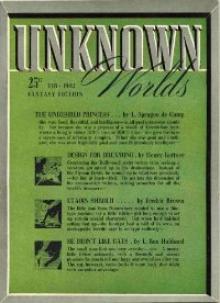 Etaoin Shrdlu
Etaoin Shrdlu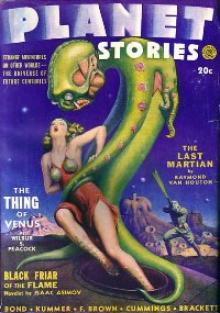 The Star Mouse
The Star Mouse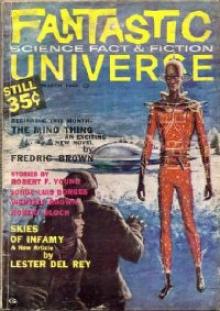 The Mind Thing
The Mind Thing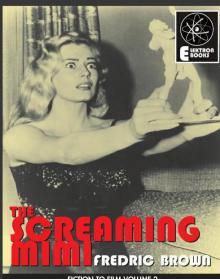 The Screaming Mimi
The Screaming Mimi The Fabulous Clipjoint
The Fabulous Clipjoint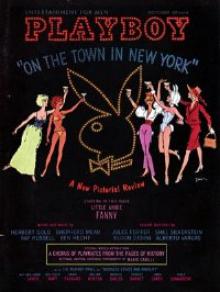 Puppet Show
Puppet Show It Didn't Happen
It Didn't Happen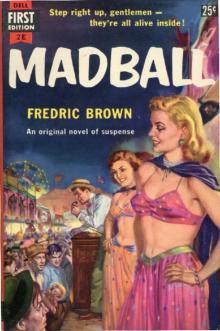 Madball
Madball Happy Ending
Happy Ending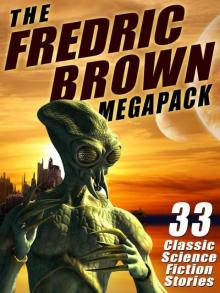 The Fredric Brown Megapack: 33 Classic Science Fiction Stories
The Fredric Brown Megapack: 33 Classic Science Fiction Stories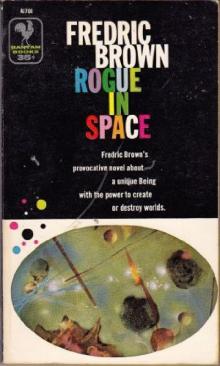 Rogue in Space
Rogue in Space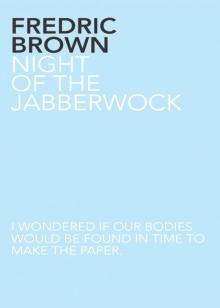 Night of the Jabberwock
Night of the Jabberwock The Dead Ringer
The Dead Ringer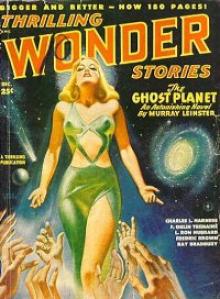 Knock
Knock We All Killed Grandma
We All Killed Grandma Space On My Hands
Space On My Hands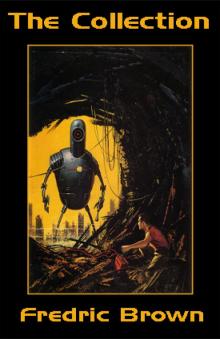 The Collection
The Collection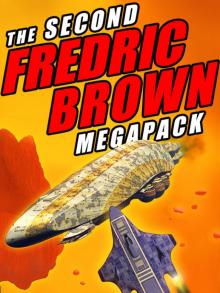 The Second Fredric Brown Megapack: 27 Classic Science Fiction Stories
The Second Fredric Brown Megapack: 27 Classic Science Fiction Stories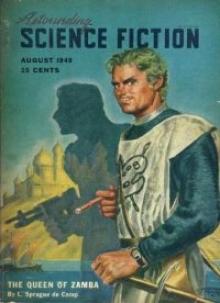 Letter to a Phoenix
Letter to a Phoenix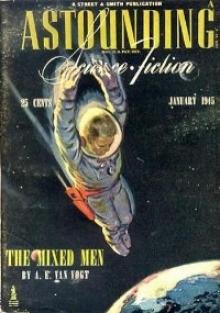 The Waveries
The Waveries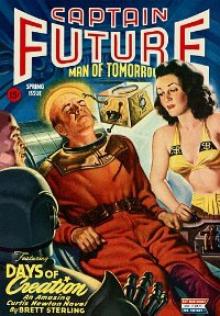 Nothing Sirius
Nothing Sirius The Deep End
The Deep End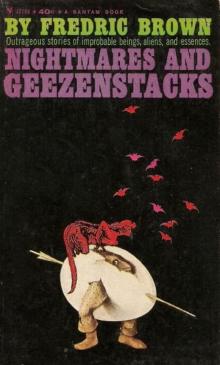 Nightmares & Geezenstacks
Nightmares & Geezenstacks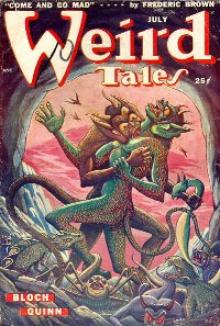 Come and Go Mad
Come and Go Mad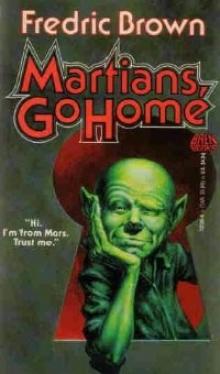 Martians, Go Home
Martians, Go Home